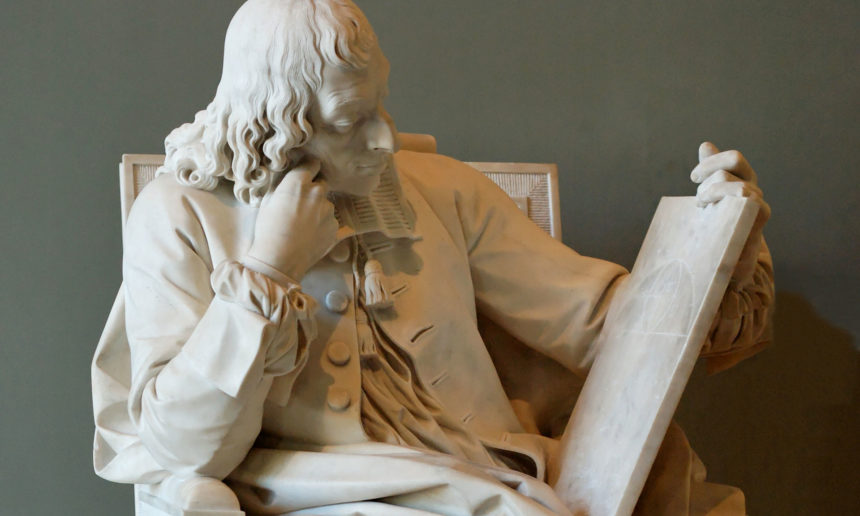Blaise Pascal was born in 17th century France and is renowned as a genius mathematician, physicist, philosopher, inventor, writer, and Christian theologian. Among his many accomplishments was developing the foundation for the theory of probabilities still used today, formulating what is known as Pascal’s principle of pressure, and inventing a mechanical calculator, a forerunner of today’s computer engineering.
Pascal was born in an era of significant change, the Age of Enlightenment. Descartes, Voltaire, Montesquieu, and others took center stage in this new movement that emphasized reason, individualism, and skepticism.
His mother died while he was very young, and he was raised by his father, Étienne, who also had an interest in mathematics and science and became a chief tax officer, lawyer, and local judge. His father saw that young Pascal and his siblings excelled in science and mathematics and decided to educate them himself.
A Night of Fire
Pascal’s father slipped and broke his hip on an icy street in the city of Rouen during the winter of 1646. He was treated by the finest doctors in France who were in Rouen at the time, Monsieur Deslandes and Monsieur de la Bouteillerie. Both doctors were followers of the teachings of Jansenism. Declared a heresy by the Catholic Church, Jansenism emphasized original sin, human depravity, predestination, and the necessity for divine grace, instead of good works as being essential to salvation.
On November 23, 1654, Pascal experienced an intense vision of the crucifixion. That event confirmed his conversion to Christ, which he recorded on parchment:
“From about half-past ten in the evening until about half-past twelve … FIRE … God of Abraham, the God of Isaac, the God of Jacob, and not of the philosophers and savants. Certitude. Certitude. Feeling. Joy. Peace.”
He carried this sentiment with him the rest of his life, secretly sewing the piece of parchment into each coat he ever wore. After his death, a servant discovered this scrap that has since become known as the Memorial.
A New Life
After his conversion, he felt he began a new life and was actively involved in propagating the doctrine of experiencing God through the heart instead of through reason. Among his most outstanding works in defense of the Christian faith is Les Provinciales, a set of essays promoting the return to morality and belief in divine grace.
His other notable work, Penses, is a collection of his Christian apologetic thoughts. He disputed that only reason and science are necessary to lead people to God. Instead, Pascal promoted that only by personally experiencing Christ can people know God, and that belief comes through the heart by God’s grace. He wrote:
“Do not be surprised at the sight of simple people who believe without argument. God makes them love him and hate themselves. He inclines their hearts to believe. We shall never believe with a vigorous and unquestioning faith unless God touches our hearts; and we shall believe as soon as he does so.”
Pascal died in 1662 after painful convulsions due to grave health issues. His last words were, “May God never abandon me.” He leaves behind a great legacy in mathematics, physics, science, philosophy, and religion, many of which are still used and referenced today.
Blaise Pascal and the Fiery Night Related Articles
==> Also read “Finding Salvation by W.D. Pitton.”
==> And read “Bethany Homan: Missionary to Peru.”


